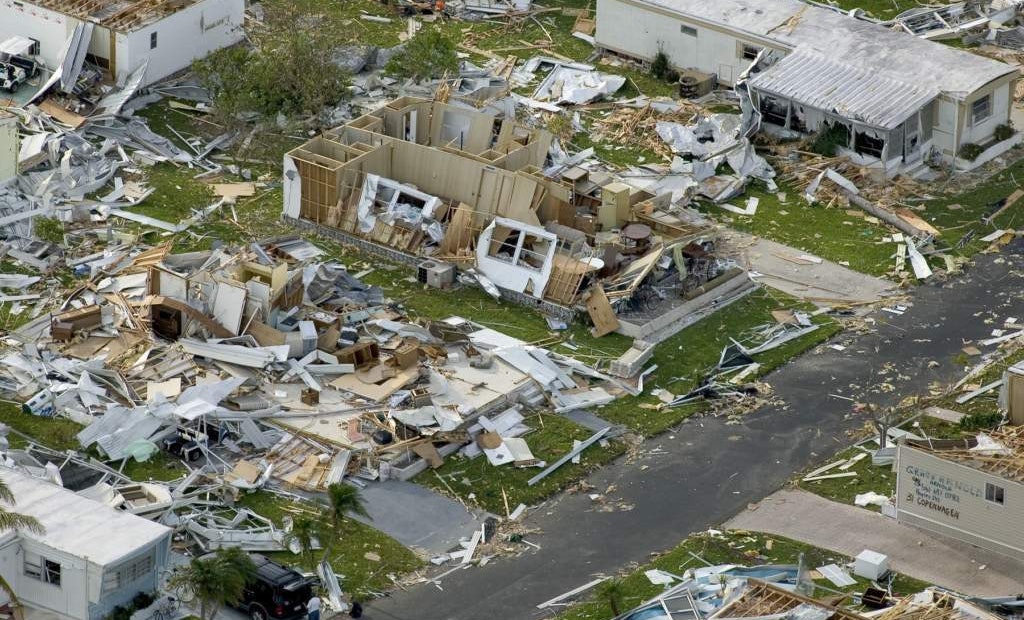Interested in Portable Sanitation?
Get Portable Sanitation articles, news and videos right in your inbox! Sign up now.
Portable Sanitation + Get AlertsIn the midst of wildfire and hurricane seasons, we’ve rounded up the most common disaster response advice doled out by pumpers and portable restroom operators. Below you will find pointers for preparation and for response.
In preparation
- Run disaster drills
Talk through the proper protocol for handling a tornado, wildfire, or other disasters that are possible within your geography, and have your team practice the right response. Remember that ensuring the safety of all your people is the top priority. - Embrace the cloud
Keeping records and files secure is a big concern, and the best way to safeguard your documents against disasters is to back them up to the cloud. Make certain that all of your important files are synced to the cloud automatically and stored in a secure offsite location. - Invest in insurance
Something else you can do is to invest in the proper insurance — flood insurance, fire insurance or whatever else. Generally, it’s a smart idea to get multiple opinions on what you need for disaster insurance. Also, try to find an insurance agent who specializes in covering businesses. - Have disaster kits ready
Hopefully your staff will never have to weather a natural disaster while at work, but if they do, you’ll want everyone to be prepared. Having some disaster kits on site can be a good way to make this happen. In particular, stock up on first-aid kits, bottled water, and maybe some protective gear such as eyeglasses or masks. - Be ready for anything
It’s good to have a disaster plan sketched out and in writing, where team members can consult it as needed. Again, the hope is that you’ll never need it, but even so, having it ready is the responsible thing to do. As you make your disaster-preparedness plan, think about the critical business assets you need to protect, and make sure that your team members are at the top of that list. Keeping your employees safe is always the foremost concern. Some things to remember:- Make sure you can get calls. Phone service — including cell service — may not work. Consider using two-way or push-to-talk radios to communicate with your team. A remote answering service can take phone calls as well and relay them via radio.
- Make sure your office is functional. Keep a standby generator in the office, which powers everything — heat, air, lights, microwave, refrigerator.
- Make sure you’ll have enough units. Vast numbers of units will be needed in the aftermath of a natural disaster. Make arrangements with other portable restroom companies to bring in units if you don’t have enough.
- Make sure you can get fuel. Establish a relationship with your fuel provider beforehand to make sure you can still get diesel and gas.
- Evaluate
Continually evaluate your equipment needs so that if you face a major loss, you know what you’ll need to purchase to keep your business running smoothly.
In response
- Assess the damage
Should you find your business rocked by a natural disaster, it’s imperative to pause and assess the damage before you resume normal activities. Make sure you inspect your facility and equipment thoroughly for any potential safety hazards and provide an accurate depiction of the scene to your insurance company. - Handle critical needs first
For example, one portable restroom operator has a standing order to provide units and daily service to a number of critical entities such as nursing homes and the state as soon as a warning goes out or a natural disaster occurs. - Be prepared to do what it takes
Emergency situations can mean brutally long hours with little time to rest for you and your crew. If you’re usually in the office, be prepared to drive a route. Usually short staffed on a normal day? Call in temporary reinforcements, where you can. - Reward your team
Once emergency response mode wind downs and business is on the fast track back to normal, consider rewarding your team. Whether it be through extra pay, a pizza party, a bowling outing or the like, let your crew know how much you appreciate their hard work and extra effort.






